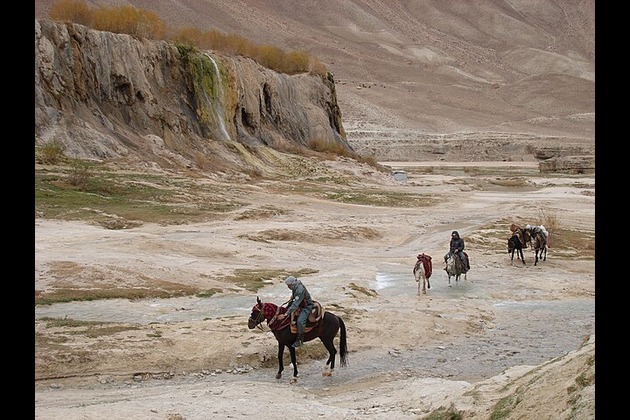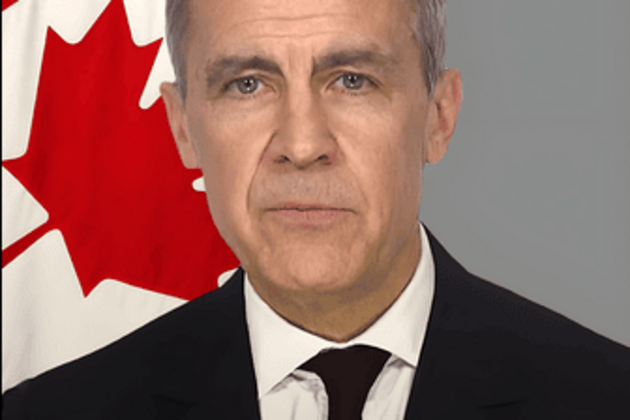Reformed Global Financial Architecture Must Be Equipped to Address Unique Circumstances of Countries in Special Situations, Speakers Stress as Conference Enters Second Day
Press UN
01 Jul 2025, 13:57 GMT+10

SEVILLA, SPAIN (1 July) — As the fourth International Conference on Financing for Development entered its second day, Government officials from around the world took the floor to underline the need to construct an international financial system that both understands and addresses the unique circumstances of States in different stages of development.
“Every country aims to improve lives and secure a better future for its people,” observed Hussain Mohamed Latheef, Vice-President of Maldives. And while sustainable development is central to that ambition, structural barriers in the global financial system make progress more challenging for developing countries. For many such countries — especially small island developing States — “unsustainable debt is the greatest barrier to progress”, he stressed. Ineligible for concessional finance, Maldives is forced to rely on commercial borrowing for basic development needs. He therefore suggested a mechanism in which creditors link debt relief to a country’s investment in building resilience.
Also spotlighting debt’s deleterious effect on development, Mohamed Juldeh Jalloh, Vice-President of Sierra Leone, said: “We are investing in education, healthcare, energy and infrastructure, but high debt-servicing costs continue to constrain our fiscal space.” Tarek Mitri, Deputy Prime Minister of Lebanon, pointed out that some countries are forced to spend up to 20 per cent of their revenues on debt-servicing, “limiting their ability to invest in human development and social protection”. He called for a “profound” restructuring of the international financial architecture, in which “financing the SDGs becomes everyone’s business”.
Guylain Nyembo Mbwizya, Deputy Prime Minister of the Democratic Republic of the Congo, said that his country is undergoing deep transformation “although the sound of weapons being fired can be heard in the east”. Nevertheless, like in most African countries, this push towards development has revealed certain dysfunctions. Calling for more equitable State representation in the Bretton Woods institutions, he also urged that carbon credits generated by tropical forests be recognized at their fair value on international markets to guarantee “fair remuneration for the ecosystem services provided to humanity”.
Development as Tool for Conflict Prevention
Also detailing his country’s unique situation, Feisal bin al Hussein, Prince of Jordan, said: “As hosts of over 3.8 million refugees — including 1.3 million Syrians — our education, healthcare and infrastructure have been severely impacted.” Further, already-scarce water resources have dwindled under added pressure from climate change. Against that backdrop, he stressed that “it is time to move from fragmented aid to coherent, country-led financing strategies and to unlock concessional financing for middle-income countries”. He added that his country — “a pillar of stability in a conflict-ridden Middle East” — views development as a tool for conflict prevention.
For his part, Amadou Oury Bah, Prime Minister of Guinea, called for “differentiated financing instruments, which factor in the specific reality of countries like ours”. He also said that development assistance that does not factor in climate vulnerabilities cannot be fair, inclusive or effective. “Our region is a living symbol of what could come to pass if we fail to show solidarity,” he warned, as the crisis in the Sahel demonstrates the “worldwide risks and harmful consequences of climate change”. He therefore urged a “thorough renewal of the foundations of multilateralism — in particular, financial multilateralism”.
Many others agreed. “We call for an overhaul of international financial mechanisms to make them better tailored to the needs of developing countries,” said Sarra Zaafrani, Prime Minister of Tunisia. Multilateral development banks must show greater transparency and flexibility, urged Hồ Đức Phớc, Deputy Prime Minister of Viet Nam — “especially by simplifying administrative procedures”. Salah Ahmed Jama, Deputy Prime Minister of Somalia, expressed hope that the international financial architecture will be reformed and made “compatible with the needs of most of the citizens around the world”.
Focus on Small Island Developing States, Least Developed Countries, Landlocked Developing Countries
Elmer Schialer Salcedo, Minister for Foreign Affairs of Peru, said that the challenges faced by small island developing States, least developed countries and landlocked developing countries require “tailored attention”. Additionally, middle-income countries face increasing restrictions on access to concessional financing, high levels of debt and the risk of “getting stuck in the middle-income trap”, he said. “These realities demand a financial architecture that is more inclusive and capable of offering timely solutions to the different types of developing countries there are,” he stressed, also urging a move beyond per-capita income as the only criterion for accessing development financing.
“Small island developing States are a special case for sustainable development,” stated Gustav Aitaro, Minister for Foreign Affairs of Palau, speaking for the Alliance of Small Island States. Yet, he underscored: “The international financial system does not see us, let alone serve us.” Elaborating, he detailed a “paradox” where, when such States graduate to high-income status, they face “stripped access to grants, concessional financing and even development cooperation”. He therefore urged the use of the Multidimensional Vulnerability Index: “The [Multidimensional Vulnerability Index] is not about favouring [small island developing States]; it is about getting the rules right so that the system values context, complexity and risk.”
“Developing countries are not looking for alms,” emphasized Inés María Chapman Waugh, Deputy Prime Minister of Cuba — “we simply want inclusive and fair treatment.” She also underscored that it is “profoundly unjust” that official development assistance (ODA) will continue to be diminished in order to finance the arms industry, asking: “How can we explain that developed countries spent $2.7 trillion on weapons, while developing countries are fighting to survive?” She also called for the elimination of unilateral coercive measures, a point echoed by the representative of Iran, who rejected “unilateralism, which poses a grave threat to global peace and development”.
Stating that the international financial architecture is simply not capable of meeting the requirements of sustainable development, Nadir Larbaoui, Prime Minister of Algeria, underlined the need to enable developing countries to take part in the governance of international financial institutions. He also pointed out the limits of relying on private funding. However, striking a positive note, he said that his country’s financial policies have allowed Algerians to “free ourselves from the debt burden”. Now, Algeria can assist countries still facing that problem, and he pointed out that his country’s agency for international cooperation supports education, health and energy infrastructure in many African countries.
Role of Middle-Income Countries
Similarly, Serik Zhumangarin, Deputy Prime Minister of Kazakhstan, said that his country — “as an emerging middle-income donor” — actively promotes digital equity, access to education and humanitarian cooperation “in our region and beyond”. Further, Almaty hosts the United Nations Regional Centre for Sustainable Development Goals for Central Asia and Afghanistan. He also reported that his country has established its ODA agency KazAID to “institutionalize our development cooperation”. In that vein, Xavier Espot Zamora, Prime Minister of Andorra, reported that his country has “established certain tools, which demonstrate that all States — independent of their size — can contribute to global climate goals”.
On that, Samir Sharifov, Deputy Prime Minister of Azerbaijan, highlighted the ambition of the Baku Finance Goal — agreed at the 2024 UN Climate Change Conference — which aims to mobilize at least $300 billion per year for climate finance for developing countries. Meanwhile, Saleumxay Kommasith, Deputy Prime Minister of the Lao People’s Democratic Republic — speaking for the Association of South-East Asian Nations (ASEAN) — said that the Association is mobilizing public and private investments towards infrastructure development and regional connectivity. In his national capacity, he spotlighted his country’s commitment to graduate from least-developed-country status and transform “from a landlocked into a land-linked country”.
Commitment to Official Development Assistance
Roderick Galdes, Minister for Social and Affordable Accommodation of Malta, pointed out that the European Union and its 27 member States contribute 42 per cent of all ODA — a “sign of commitment from the EU to address development challenges”. However, he underscored that other partners need to do more to “increase the pot” of funds available to developing countries. Development cooperation is not about charity, stressed Þorgerður Katrín Gunnarsdóttir, Minister for Foreign Affairs of Iceland — it is a strategic investment in common prosperity. “Every dollar invested in ODA leverages additional financing from other sources,” she added.
“As the biggest developing country, China has experienced poverty and backwardness, and feels for other countries for the difficulties they are facing,” said Lan Fo’an, that country’s Minister for Finance. To do its part, China will provide ¥360 billion of financial support to African countries, and will extend a credit line of ¥66 billion to Latin American and Caribbean States. Further, Beijing announced in 2024 that it would grant “zero-tariff treatment” to all least developed countries with diplomatic ties to China, which he said “turns China’s big market into big opportunities for developing countries”.
For her part, Anne Aly, Minister for International Development of Australia, also speaking for Canada and New Zealand, said that her country will invest a record $5.1 billion in development assistance in 2025. “At a time of tightening budgets, Australia has increased our development assistance,” she pointed out, and her country has also refocused its activities in response to its partners’ priorities and needs. “And we remain the Pacific’s largest development partner,” she noted — “a partner our friends can rely on”. Also supporting the recognition of multidimensional vulnerability, she said: “If we’re serious about leaving no one behind, we must reform outdated systems.”
However, Xavier Bettel, Deputy Prime Minister of Luxembourg, pointed out that international solidarity is “not particularly popular today”, both internationally and among national electorates. Nevertheless, while countries “often have our own problems to think about”, he reported that Luxembourg will maintain its ODA benchmark. Yet, he recalled a sentiment he expressed during his 10 years as Prime Minister of his country: “It doesn’t matter whether you are Catholic, Jewish or Muslim, whether you are heterosexual, homosexual, man or woman — depending on the country you’re from, that’s what’s going to determine your life prospects.” He added: “It’s sad that that’s the situation in 2025.”
Time Running Out to Rescue Sustainable Development Goals
Against that backdrop, Yusuf Maitama Tuggar, Minister for Foreign Affairs of Nigeria, said that this conference “is indeed timely — or rather, we are running out of time”. “The next five years will determine whether we rescue the SDGs, or fail an entire generation,” stressed Mulambo Haimbe, Minister for Foreign Affairs and International Cooperation of Zambia. Adding that the Sevilla Commitment lays the foundations for urgent reforms, renewed commitments and practical action — but that “implementation is everything” — he urged: “Together, we can finance the future we want.”
 Share
Share
 Tweet
Tweet
 Share
Share
 Flip
Flip
 Email
Email
Watch latest videos
Subscribe and Follow
Get a daily dose of Israel Herald news through our daily email, its complimentary and keeps you fully up to date with world and business news as well.
News RELEASES
Publish news of your business, community or sports group, personnel appointments, major event and more by submitting a news release to Israel Herald.
More InformationInternational
SectionNew French law targets smoking near schools, public spaces
PARIS, France: France is taking stronger steps to reduce smoking. A new health rule announced on Saturday will soon ban smoking in...
Trump hints at DOGE investigation of Musk subsidies
WASHINGTON, DC - U.S. President Donald Trump on Tuesday claimed Elon Musk's success has been built on government subsidies. Without...
Native leaders, activists oppose detention site on Florida wetlands
EVERGLADES, Florida: Over the weekend, a diverse coalition of environmental activists, Native American leaders, and residents gathered...
Beijing crowds cheer AI-powered robots over real soccer players
BEIJING, China: China's national soccer team may struggle to stir excitement, but its humanoid robots are drawing cheers — and not...
COVID-19 source still unknown, says WHO panel
]LONDON, U.K.: A World Health Organization (WHO) expert group investigating the origins of the COVID-19 pandemic released its final...
Fox faces $787 million lawsuit from Newsom over Trump phone call
DOVER, Delaware: California Governor Gavin Newsom has taken legal aim at Fox News, accusing the network of deliberately distorting...
Business
SectionTaliban seeks tourism revival despite safety, rights concerns
KABUL, Afghanistan: Afghanistan, long associated with war and instability, is quietly trying to rebrand itself as a destination for...
Nvidia execs sell $1 billion in stock as AI boom drives record prices
SANTA CLARA, California: Executives at Nvidia have quietly been cashing in on the AI frenzy. According to a report by the Financial...
Tech stocks slide, industrials surge on Wall Street
NEW YORK, New York - Global stock indices closed with divergent performances on Tuesday, as investors weighed corporate earnings, central...
Canada-US trade talks resume after Carney rescinds tech tax
TORONTO, Canada: Canadian Prime Minister Mark Carney announced late on June 29 that trade negotiations with the U.S. have recommenced...
Lululemon accuses Costco of selling knockoff apparel
Vancouver, Canada: A high-stakes legal showdown is brewing in the world of athleisure. Lululemon, the Canadian brand known for its...
Shell rejects claim of early merger talks with BP
LONDON, U.K.: British oil giant Shell has denied reports that it is in talks to acquire rival oil company BP. The Wall Street Journal...













